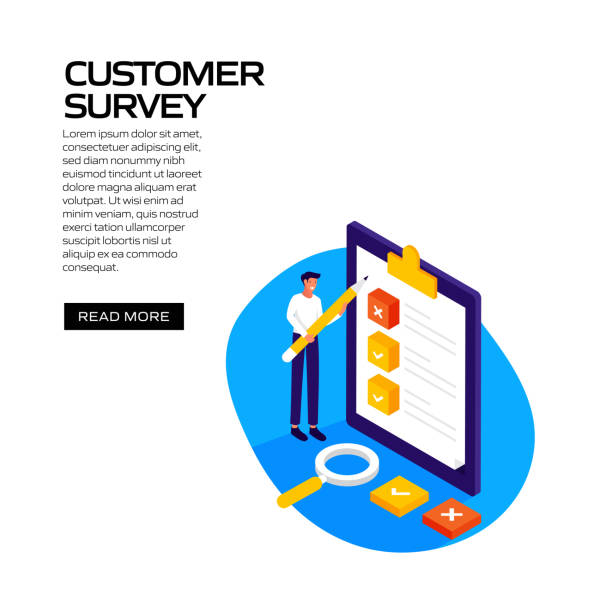Introduction to Off-Page SEO and Its Importance in the Digital Age
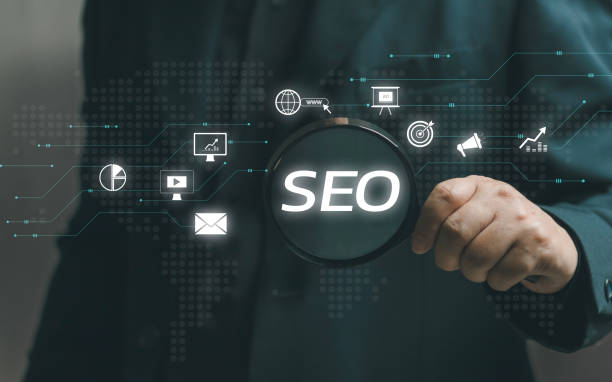
In today’s competitive online world, simply having a good website is not enough.
To be seen and attract your target audience, you need more complex strategies.
One of these fundamental pillars in Search Engine Optimization (SEO) is Off-Page SEO.
This part of SEO refers to a set of activities performed outside your website, aiming to improve your site’s credibility, authority, and ranking in search results.
Unlike #Internal_SEO, which focuses on on-site content and structure, Off-Page SEO deals more with your site’s relationships with other websites and online platforms.
The importance of this area is such that many experts consider it the main factor for success in reaching the first pages of Google.
Today, no complete SEO strategy is conceivable without considering Off-Page SEO. The main goal of Off-Page SEO is to increase your site’s web credibility and domain authority.
Search engines consider incoming links from other reputable sites as a vote of confidence in your content.
The greater the number and quality of these links, the more credible and trustworthy Google perceives your site, and consequently, it gives it a better ranking.
This aspect of SEO provides a unique opportunity for businesses to gain visibility and credibility beyond their website boundaries.
Are you concerned about your e-commerce site’s low conversion rate and not achieving your desired sales?
Rasawob is your specialized solution for a successful e-commerce website.
✅ Significant increase in conversion rate and sales
✅ Professional and user-friendly design to satisfy customers
⚡ Ready for a transformation in online sales? Get a free consultation!
Main Pillars of Off-Page SEO and How They Influence
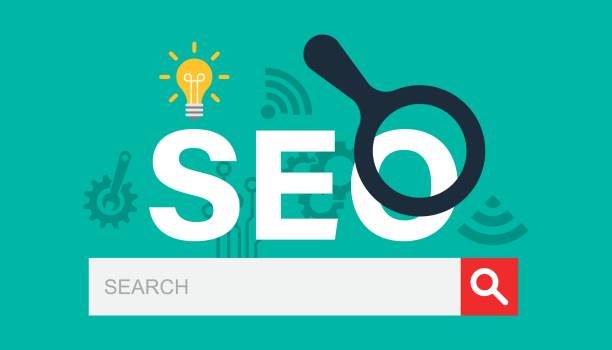
Off-page SEO is not limited to link building; it encompasses a wide range of activities that all contribute to improving your brand’s visibility and credibility in the online space.
The backbone of Off-page SEO is undoubtedly Link Building.
Backlinks, or incoming links from other sites to your site, act like a vote of confidence from the internet.
But in addition to link building, other factors also play a key role in this area.
Brand Mentions, even without links, can indicate your brand’s reputation and popularity and be recognized by search engines.
Activity on social media, although not directly affecting rankings, indirectly helps your Off-page SEO by increasing traffic, brand awareness, and social signals.
Off-site Content Marketing, such as publishing guest articles, infographics, or videos on other platforms, can lead to link acquisition and targeted traffic.
Local SEO and receiving positive reviews on platforms like Google My Business are also important aspects of Off-page SEO for physical businesses.
These pillars work together to present a comprehensive and powerful image of your site’s credibility and popularity to search engines.
A deep understanding of these factors is essential for any SEO specialist or business owner.
Link Building Strategies in Off-Page SEO: Types of Backlinks

Link building is the heart of Off-Page SEO and requires a strategic and intelligent approach.
There are various types of backlinks, each capable of having a different impact on your site’s ranking.
The most important distinction between links is DoFollow and NoFollow links.
DoFollow links allow search engines to pass link equity (link juice) from the source site to the destination site and have more SEO value.
In contrast, NoFollow links typically do not pass this equity but can still increase traffic and brand awareness.
Link building strategies include several items: Guest Posting, where you write quality articles for relevant sites and receive a link back to your site in return.
Broken Link Building, finding broken links on other sites and suggesting your content as a replacement.
Link Building through Infographics and Visual Content, creating engaging and shareable content that others are willing to link to.
Business Directories and Local Listings, which are very important for local SEO.
Link Competition, analyzing successful competitors’ backlinks and trying to acquire links from the same sources.
The following table is provided for a better understanding of backlink types and their uses:
| Backlink Type | Description | Importance for Off-Page SEO |
|---|---|---|
| DoFollow Link | Passes SEO Authority (Link Juice) | High (Directly impacts ranking) |
| NoFollow Link | Does not directly pass SEO authority | Medium (Helps with traffic and brand awareness) |
| Editorial Link | Natural link within relevant and high-quality content | Very High (Most valuable type of link) |
| Directory Link | Registration in online business listings | Medium (Especially for local SEO) |
| Broken Link | Replacing others’ broken links with your content | High (An effective link building method) |
Quality or Quantity: Assessing Backlink Authority in Off-Page SEO

One of the fundamental questions in the field of Off-Page SEO is whether the number of backlinks is more important than their quality? The answer is undoubtedly quality.
Google and other search engines are increasingly emphasizing the quality and credibility of linking sources.
Hundreds of links from low-value and spammy sites not only don’t help your ranking but can also lead to your site being penalized by Google.
In contrast, even a single high-quality link from a reputable and relevant site can have an astonishing impact on your SEO.
The main criteria for evaluating backlink quality include the linking site’s Domain Authority (DA) and Page Authority (PA) (metrics provided by Moz), the linking site’s expertise and thematic relevance to your content, and the naturalness of the link.
A natural link is one that has been acquired organically due to the value of your content, not through illegal exchanges or link buying and selling.
Also, the Anchor Text, or the text on which the link is placed, is very important.
It should be relevant to the linked content and have sufficient diversity to appear natural.
Focusing on quality in Off-Page SEO is a long-term and sustainable approach that brings real and permanent results for your site.
Are you dissatisfied with the low conversion rate of visitors to customers on your e-commerce site?
Solve this problem forever with professional e-commerce website design by Rasawob!
✅ Significantly increase visitor-to-customer conversion rate
✅ Create an excellent user experience and build customer trust
⚡ Get a free consultation
Beyond Backlinks: Other Signals in Off-Page SEO
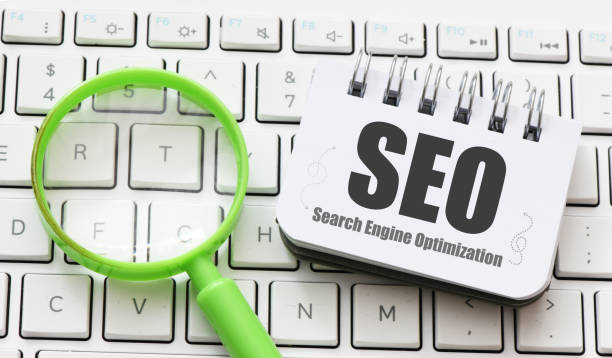
Although backlinks are considered a vital element in Off-Page SEO, one should not assume that this field is limited to link building alone.
Search engines look for a wider range of signals to understand a website’s credibility and popularity.
One of the most important of these signals is Brand Mentions.
Even if your brand name is mentioned without any link in a news article, a blog post, or even an online conversation, Google can recognize this as a sign of your brand’s recognition and relevance.
These mentions, especially if they occur on reputable and high-traffic platforms, add to your brand’s overall credibility.
Additionally, social media activity and increased interactions on these platforms (such as content sharing, likes, and comments) do not directly affect rankings, but can lead to increased website visits, enhanced brand awareness, and ultimately, attract natural backlinks.
User reviews and ratings on various platforms like Google My Business, Yelp, and other review sites play a crucial role in Off-Page SEO, especially for local businesses.
Positive reviews indicate customer satisfaction and your business’s credibility.
Presence in reputable directories and local listings also helps search engines better understand your business’s identity and location.
All these signals together provide a complete picture of your site’s credibility and relevance to Google’s algorithms and complement link-building efforts in Off-Page SEO.
The Role of Content in Off-Page SEO Strategies: An Analytical Approach

It might raise the question of how content, which is part of On-Page SEO, can affect Off-Page SEO? The answer is simple: Quality content is the backbone of any SEO strategy, both On-Page and Off-Page. Exceptional content naturally attracts links (Link Bait).
When you produce a highly comprehensive, educational, analytical, or even entertaining article, others are more inclined to share and link to it.
This approach can be considered a content marketing strategy that indirectly, yet powerfully, impacts Off-Page SEO.
Provocative or controversial content can also lead to high engagement and natural links, albeit with its specific risks.
Creating specialized and in-depth content in a specific field establishes you as an authority in that industry and increases the chance of receiving links from peer industry sites.
Additionally, publishing news content relevant to your industry or responding quickly to current events can attract media attention, leading to news coverage and valuable links.
In essence, content acts as an asset that you can use to persuade others to link to your site.
Without valuable content, your Off-Page SEO efforts will be like building a house without a foundation.
Essential Tools for Off-Page SEO Analysis and Management
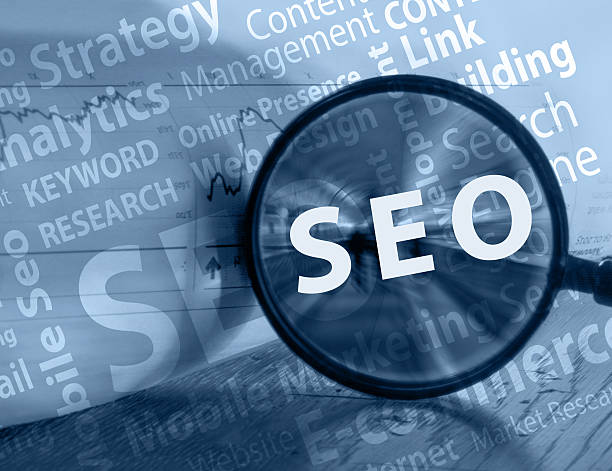
For a successful Off-Page SEO strategy, using the right tools for analyzing, monitoring, and managing backlinks and other signals is essential.
These tools allow you to examine your backlink profile and that of your competitors, discover new link-building opportunities, and identify and remove toxic links.
Ahrefs and SEMrush are two of the most powerful tools available in the market, offering extensive capabilities for Off-Page SEO analysis.
These tools allow you to:
- View incoming backlinks to any site.
- Check the Domain Authority and Page Authority of sites.
- Identify keywords for which competitors rank.
- Find new link-building opportunities (e.g., sites that have linked to content similar to yours).
- Find broken links.
- Monitor the growth and decline of your backlink profile.
Google Search Console is also a free and vital tool from Google itself, providing valuable information about incoming backlinks, crawling and indexing issues, and your site’s overall performance in search results.
Other tools such as Moz Link Explorer, Majestic SEO and Screaming Frog also provide unique functionalities for managing Off-Page SEO.
The choice of the right tool depends on your needs and budget, but having at least one comprehensive tool for Off-Page SEO analysis is essential for any SEO specialist or website owner.
A deep understanding of the capabilities of these tools can significantly help you improve your site’s ranking.
| Tool Name | Main Use | Highlights |
|---|---|---|
| Ahrefs | Competitor backlink analysis, finding link-building opportunities | Most comprehensive backlink database, strong user interface |
| SEMrush | Competitor analysis, keyword research, brand monitoring | All-in-one tool for SEO and digital marketing |
| Google Search Console | Google backlink reports, indexing issues, search performance | Free and official Google tool, essential for any website |
| Moz Link Explorer | Checking Domain Authority and Page Authority, finding backlinks | DA and PA metrics are highly reputable and widely used |
| Majestic SEO | Analyzing links based on Flow Metrics (Citation/Trust Flow) | Specialized focus on link quality metrics |
Common Mistakes in Off-Page SEO and How to Avoid Them

On the path to improving Off-Page SEO, like any other area of SEO, there are mistakes that can harm your site instead of helping it.
Recognizing and avoiding these mistakes is crucial for long-term success.
One of the biggest errors is using Black Hat SEO techniques.
This includes buying and selling links, unnatural link exchanges (Link Schemes), and creating Private Blog Networks (PBNs), all of which are strongly condemned by Google and can lead to severe penalties (Manual Penalty).
Focusing solely on link quantity over quality is another common mistake.
Receiving hundreds of links from low-value and irrelevant sites is not only useless but can also make your link profile appear spammy.
Ignoring anchor text diversity can also be problematic.
Consistently using a precise and identical anchor text can be a sign of manipulation.
It is important to use diverse anchor texts, including brand names, long-tail keywords, raw URLs, and generic phrases.
Neglecting to disavow toxic links is also an error that should be addressed.
If spammy or malicious links point to your site, you should inform Google about them via Google Search Console to prevent their negative impact.
Lack of regular monitoring and analysis of Off-Page SEO efforts can also lead to missed opportunities or the continuation of ineffective strategies.
By avoiding these mistakes and focusing on ethical, quality-based approaches, you can observe sustainable and positive results in your off-site optimization.
Did you know that poor online store design can drive away up to 70% of your potential customers? Rasawob transforms your sales with professional and user-friendly e-commerce website designs.
✅ Significant increase in sales and revenue
✅ Full optimization for search engines and mobile
⚡ [Get a free consultation from Rasawob]
How Off-Page SEO Helps Local Businesses with Ranking
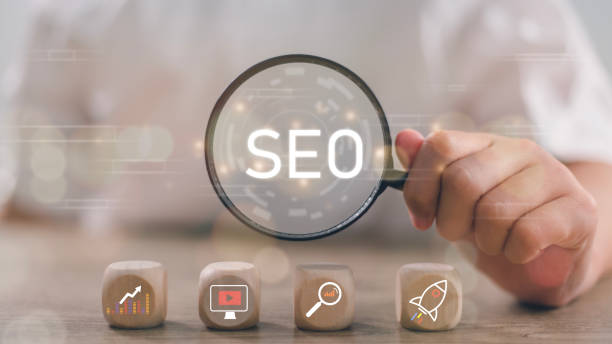
For local businesses, Off-Page SEO takes on specific and crucial dimensions.
While the general principles of off-site optimization are the same for all businesses, the emphasis on certain aspects becomes greater for local businesses.
The main goal here is to increase visibility in local searches (e.g., “restaurant near me” or “hair salon in Tehran”) and on platforms like Google My Business.
The first and perhaps most important step is creating and optimizing your Google My Business (GMB) profile.
Ensuring the accuracy and consistency of NAP (Name, Address, Phone Number) information across all online directories is extremely important.
Receiving positive reviews and ratings from customers on GMB and other review sites (such as Yelp or Tripadvisor) plays an extraordinary role in local SEO.
These reviews not only signal to Google that your business is active and popular but also build trust with potential customers.
Presence in local and industry-specific directories, such as trade associations or local sites, helps create Citations, which are highly valuable for local Off-Page SEO.
Even if these mentions do not include links, they help Google confirm the existence and legitimacy of your business.
Publishing relevant local content, such as blog posts about local events or regional news, can also attract natural backlinks from local sites and increase your credibility in the region.
Competitor Analysis in Off-Page SEO: A Strategy for Gaining an Edge
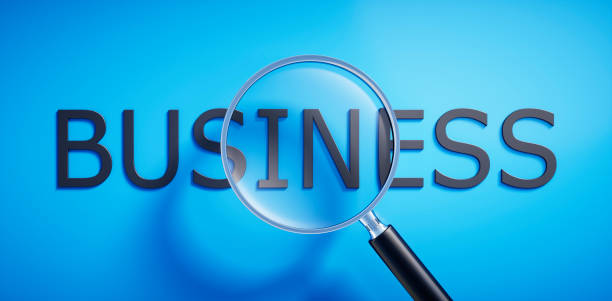
One of the most powerful strategies in Off-Page SEO is detailed competitor analysis.
This analytical approach allows you to identify the strengths and weaknesses of their Off-Page SEO strategy and capitalize on the opportunities they have created.
The goal is to understand why competitors rank higher than you and how you can surpass them.
The first step is identifying your main online competitors.
These are not necessarily your physical competitors but rather sites that rank for similar keywords to yours.
After identification, you need to analyze their backlink profile.
Using tools like Ahrefs or SEMrush, you can see where they have received links from, the quality of these links (Domain Authority, Page Authority), and the types of anchor texts they have used.
This information shows you what types of sites link to your industry and which link-building strategies have been successful for your competitors.
You can also identify their top-performing content that has attracted the most links and draw inspiration from it to produce even better and more engaging content.
Monitoring their social media activities and the extent of brand mentions can also provide valuable insights into their Off-Page SEO strategies.
This competitive approach helps you plan your link-building strategies with greater precision, learn from competitors’ mistakes, and ultimately win the Off-Page SEO battle.
Frequently Asked Questions
| Question | Answer |
|---|---|
| What is Off-Page SEO? | Off-Page SEO refers to a set of activities and methods performed outside your website to improve its ranking in search engines, such as building backlinks. |
| Why is Off-Page SEO important for a website? | Off-Page SEO shows search engines that your website is credible, popular, and trustworthy, which helps increase domain authority and ranking. |
| What is the most important factor in Off-Page SEO? | Backlinks, or links from other websites to your site, are the most important factor, especially if they are from reputable sites. |
| What are the characteristics of a quality backlink? | A quality backlink comes from reputable sites (with high authority), is relevant to your site’s topic, and has appropriate (natural) anchor text. |
| Do social networks play a role in Off-Page SEO? | Yes, sharing content on social media can help increase indirect visibility and traffic, and send positive social signals to search engines. |
| What is a PBN and is it recommended? | A PBN (Private Blog Network) is a network of private websites used to build backlinks to the main site. Google considers this method spam, and its use is strongly prohibited and can lead to penalties. |
| How is Natural Link Building done? | By producing valuable and shareable content, connecting with bloggers and influencers, and attracting media attention. |
| What is Anchor Text in a backlink? | It is the text on which the link is placed. Using diverse anchor texts relevant to the keyword appears more natural and helps with SEO. |
| What is the relationship between Local SEO and Off-Page SEO? | Local SEO includes off-site activities such as registration in Google My Business, local directories, and obtaining online reviews, which help businesses appear in local search results. |
| How can competitors’ backlinks be analyzed? | By using tools like Ahrefs, Semrush, or Moz, you can analyze competitors’ backlink profiles and identify new link-building opportunities. |
And other services of Rasawob Advertising Agency in the field of advertising:
Smart Customer Journey Map: A quick and efficient solution for increasing sales with a focus on custom programming.
Smart Customer Journey Map: Professional optimization for increasing website visits using marketing automation.
Smart Data Analysis: A dedicated service for growth in customer acquisition based on attractive UI design.
Smart Conversion Rate Optimization: An effective tool for online growth with the help of custom programming.
Smart SEO: An effective tool for user engagement with the help of attractive UI design.
And over hundreds of other services in the field of internet advertising, advertising consultation, and organizational solutions.
Internet Advertising | Advertising Strategy | Advertorials
Resources
Mizbanfa: What is Off-Page SEO?
Asan Brand: Off-Page SEO Guide
Zoomit: Digital Marketing and SEO
TopLearn: Off-Page SEO Strategy
Are you ready to take your business to the top in the digital world? Rasawob Afarin, a leading digital marketing agency, with expertise in Search Engine Optimization (SEO), content marketing, and responsive website design, offers innovative and comprehensive solutions for your growth and visibility. We help you achieve your business goals and surpass your competitors with a strong and impactful online presence.
📍 Tehran, Mirdamad Street, Next to Central Bank, Kazeroon Jonubi Alley, Ramin Alley, No. 6



